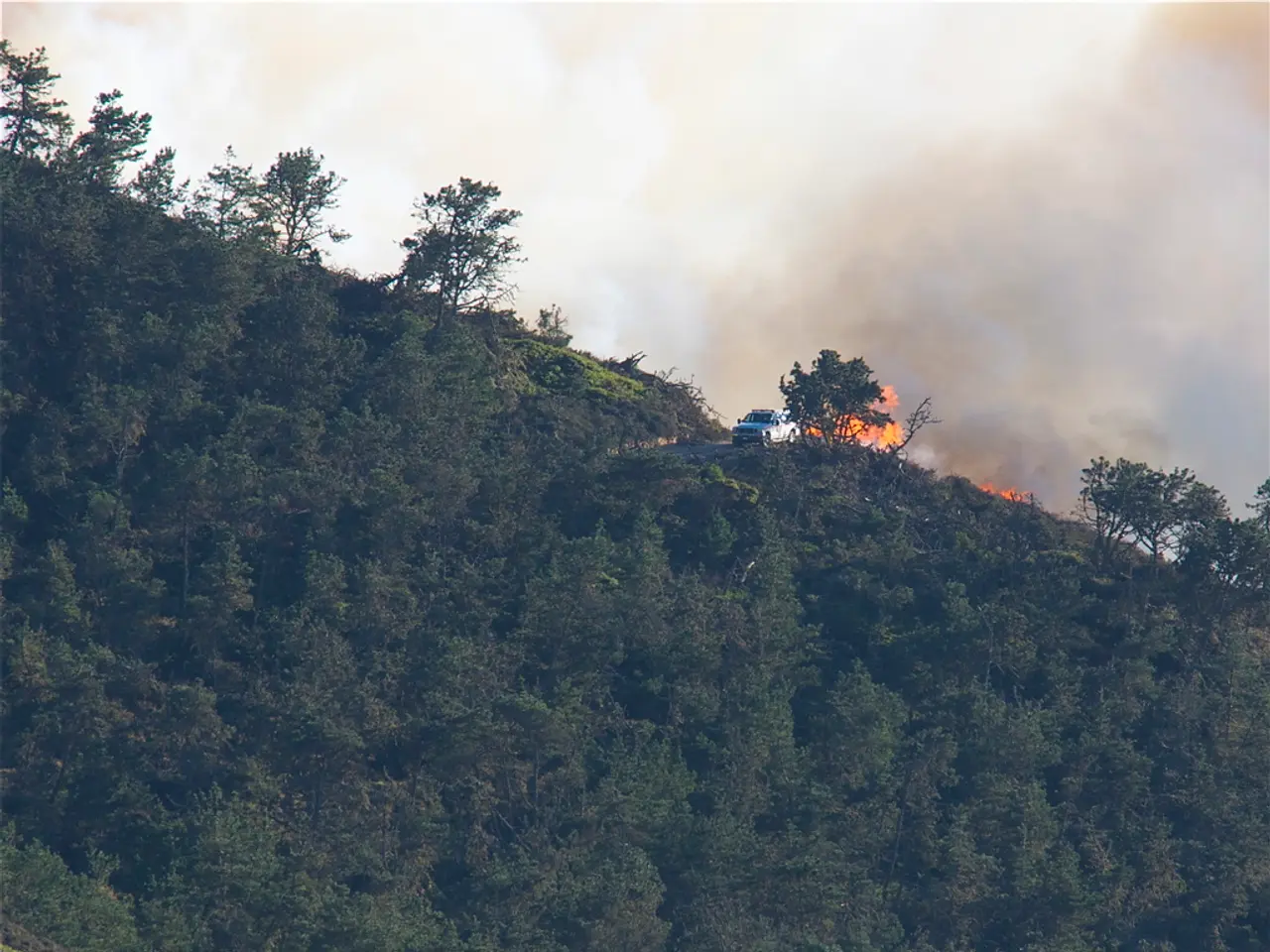Making unlawful border crossings a punishable offense becomes official policy
In a bid to strengthen border control and reduce illegal migration, the UK government is implementing a comprehensive policy that includes enhanced online and border controls, digital immigration status verification, and a tougher stance on those who promote or facilitate illegal migration, both online and offline.
The new approach comes in response to a rising concern over illegal migration, particularly the record number of Channel crossings in the first half of the year. One of the catalysts for this change is the public outcry triggered by videos of asylum seekers boasting about their taxpayer-funded accommodations on social media platforms like TikTok.
The UK's 2025 National Security Strategy underscores the government's commitment to tackling illegal activity and harmful content online. This includes measures to remove platforms and privileges for those who abuse the system, such as those spreading discord or extremist views in UK communities. The promotion of illegal migration online is expected to fall under this category of harmful content.
The Home Office and border policies are increasingly focusing on digital and online controls. For instance, the fully digital e-Visa system, which replaces physical documents and controls access digitally, is being implemented. While this system creates barriers for vulnerable groups, it represents a move towards digital enforcement and control of immigration status.
The government is also applying stricter immigration requirements and controls, including higher qualification and salary thresholds for work visas and closing visa routes that may be exploited for illegal migration or unauthorized entry. The crackdown on illegal migration is also tied to increased border and law enforcement cooperation, including online monitoring and cyber security measures to prevent illegal activities and harmful content related to migration.
In a significant development, the UK government is planning to create a UK-wide offence that criminalizes the creation, publication, or posting of online material promoting or facilitating a breach of immigration law, such as Channel crossings. This move is expected to be spearheaded by Home Secretary Yvette Cooper, who is under pressure to reduce the number of boat crossings.
Labour has also proposed a new law to stop small boat crossings, which includes an offence for promoting illegal migration. This proposal is part of a last-minute amendment to Yvette Cooper's Borders Bill, aiming to further crack down on the promotion of illegal migration.
Meanwhile, the PM and French President are expected to agree on a "one in, one out" deal to return illegal migrants. This agreement is designed to address concerns over a disproportionate number of migrants crossing from France to the UK, with French cops facing criticism for their role in this issue.
The high-stakes summit between Sir Keir Starmer and Emmanuel Macron in London is upcoming, where these issues are likely to be discussed. As the UK government continues to implement its tougher stance against illegal migration, it remains to be seen how these policy changes will impact the number of Channel crossings and the broader immigration landscape.
The UK government's tougher stance against illegal migration now extends to the digital realm, as they plan to create a UK-wide offence criminalizing the creation, publication, or posting of online material promoting or facilitating a breach of immigration law, such as Channel crossings. This move aligns with Labour's proposal for a new law to stop small boat crossings, further reinforcing the crackdown on the promotion of illegal migration online. These developments are aimed at addressing the rising concern over illegal migration and reducing the record number of Channel crossings.






